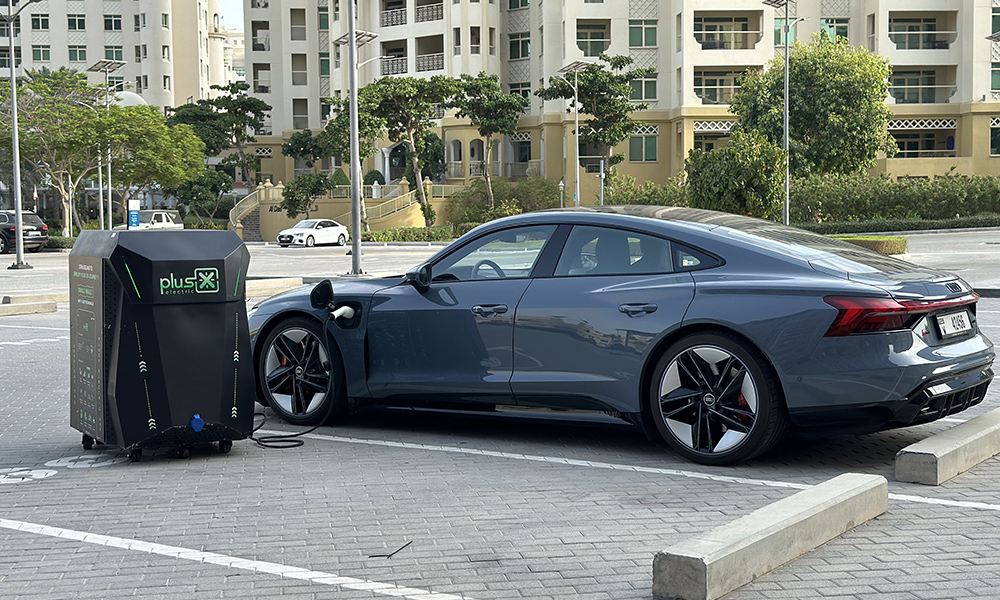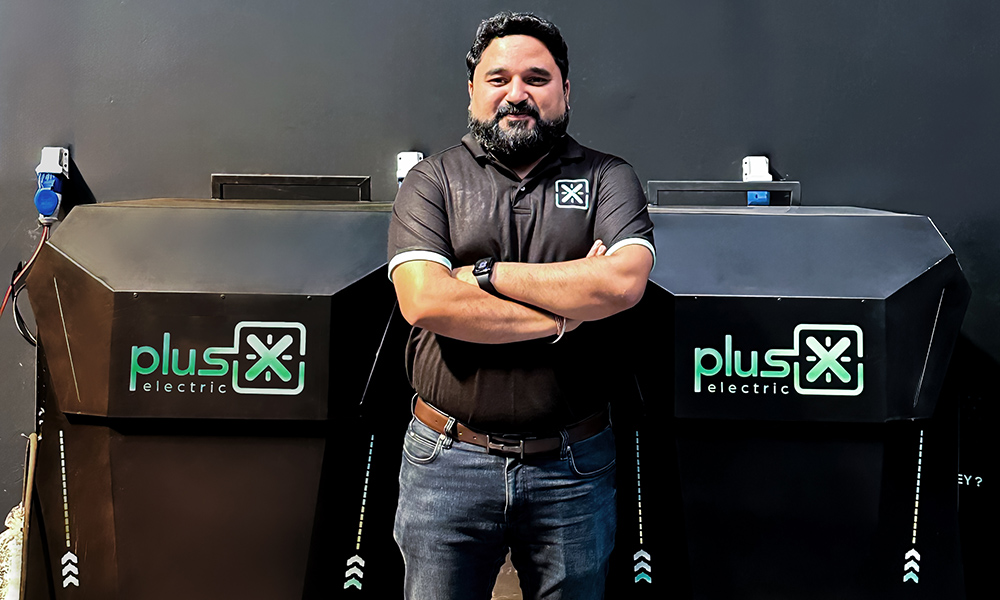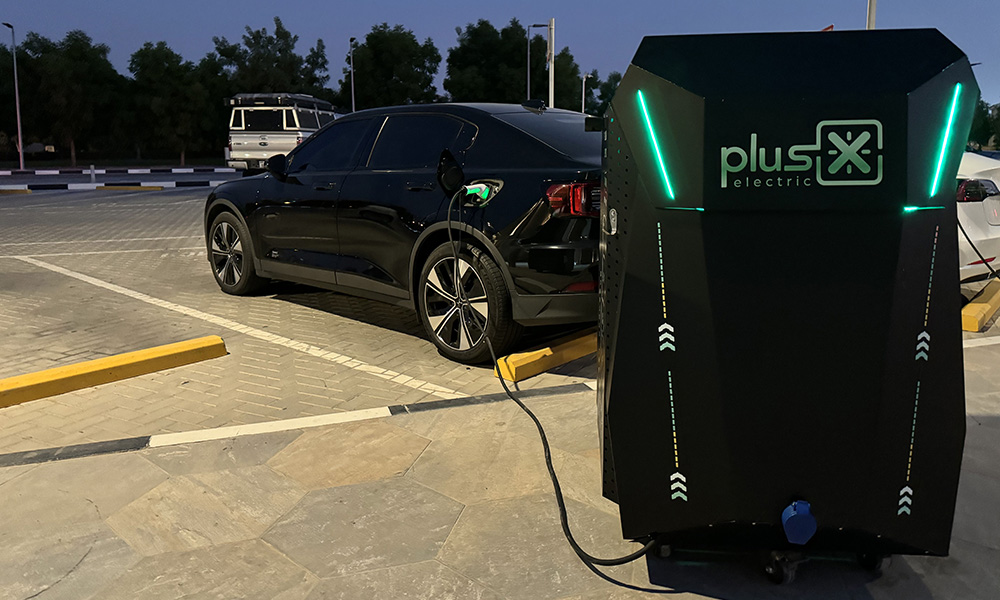Dubai-based PlusX Electric is advocating for the use of ‘more eco-friendly, non-super-fast chargers for electric vehicles (EV)’, stating that there are substantial environmental benefits of slower, more energy-efficient charging stations.
The firm notes that while ultra-fast charging stations offer rapid charging, they come with significant energy demands that can strain local grids, and go against the sustainability goals most owners have as a reason for driving EVs.
Although the firm offers a VIP service to collect and drop off EV owners’ cars taking vehicles to super-fast charging stations, it is actively calling for EV users to be mindful of the implications and frequency of using super-fast charges as a charging solution.
Ultra-fast EV chargers, such as Level 3 (DC Fast Charging) stations, are designed to minimise wait times, allowing EV owners to charge their vehicles in 15- to 30-minutes. These chargers deliver between 150- and 350-kilowatts (kW) of power – essentially the energy consumption of a small neighbourhood, the firm highlighted.
Providing context for those energy draw figures, it said: a central air conditioning unit for a large home uses two to five kW; a standard electric water heater consumes around five kW, and a multi-story apartment building with 30 residential units consumes roughly 38kW at peak times.
“A single ultra-fast charger can demand more power than an entire apartment building. This level of energy use puts enormous strain on local energy grids, causing power surges that require expensive infrastructure upgrades and additional carbon-emitting power generation to meet peak demand,” the statement cautioned.

The statement continued, “Non-super-fast chargers, including Level 1 and Level 2 stations, provide a more sustainable approach to EV charging by using much less power. These chargers are ideal for everyday use at home, work, or public parking areas where time is not as much of a constraint. There is also the added benefit of having said charging pods delivered to your car.”
Level 1 chargers, which operate at 120 volts, require only 1.44kW of power. A full charge for an EV with a 50kWh battery takes about 35 hours. Though slower, these chargers use the same power as an ordinary home appliance, such as a microwave oven or refrigerator, and your vehicle can be charged overnight or to 80% capacity which takes less time. Level 2 chargers, using a 240-volt power source, offer a maximum output of 19.2kW, reducing the charging time to approximately 2.5 hours. This is equivalent to running a few air conditioners or electric ovens simultaneously, the firm explained.
Taking this into account, the company is promoting Level 2 chargers with the aim of reducing both the peak power demand and the total energy consumption associated with EV charging. The company said the benefits include:
- Reduced grid strain: While ultra-fast chargers can cause sudden spikes in electricity demand (200kW or more), Level 2 chargers spread the load more evenly over several hours, requiring only 19.2kW per charging session. This reduces the likelihood of power surges and blackouts, lowering the need for costly grid reinforcements
- Lower carbon footprint: Slower charging reduces the amount of energy drawn from non-renewable sources during peak times. If powered during off-peak hours, especially with renewable energy, non-super-fast charging can help cities achieve carbon reduction targets more efficiently
- Economic viability: Ultra-fast charging stations consume about 30,000kWh of electricity per month – three times the energy usage of a typical gas station with a convenience store. In contrast, a well-distributed network of slower chargers can meet EV drivers’ needs with just a fraction of that energy consumption, lowering overall infrastructure costs and reducing energy waste

PlusX Electric encourages EV owners, businesses, and municipalities to make the switch to non-super-fast charging stations as part of their commitment to sustainability. By embracing slower chargers, drivers can reduce their carbon footprint, help stabilise local power grids and contribute to a cleaner environment, the statement said.
We also call upon real estate developers, shopping malls, and corporate campuses to install Level 2 chargers as a standard amenity, providing eco-friendly charging options to employees and customers alike. Offering sustainable charging solutions not only enhances environmental credentials but also positions these organizations as leaders in the transition to green energy, it added.
“Our mission at PlusX Electric goes beyond providing clean energy solutions—we aim to make a positive impact on the world. By enabling energy-efficient charging for all, we are driving both environmental and social progress,” stated Chintan Sareen, CEO at PlusX Electric.



